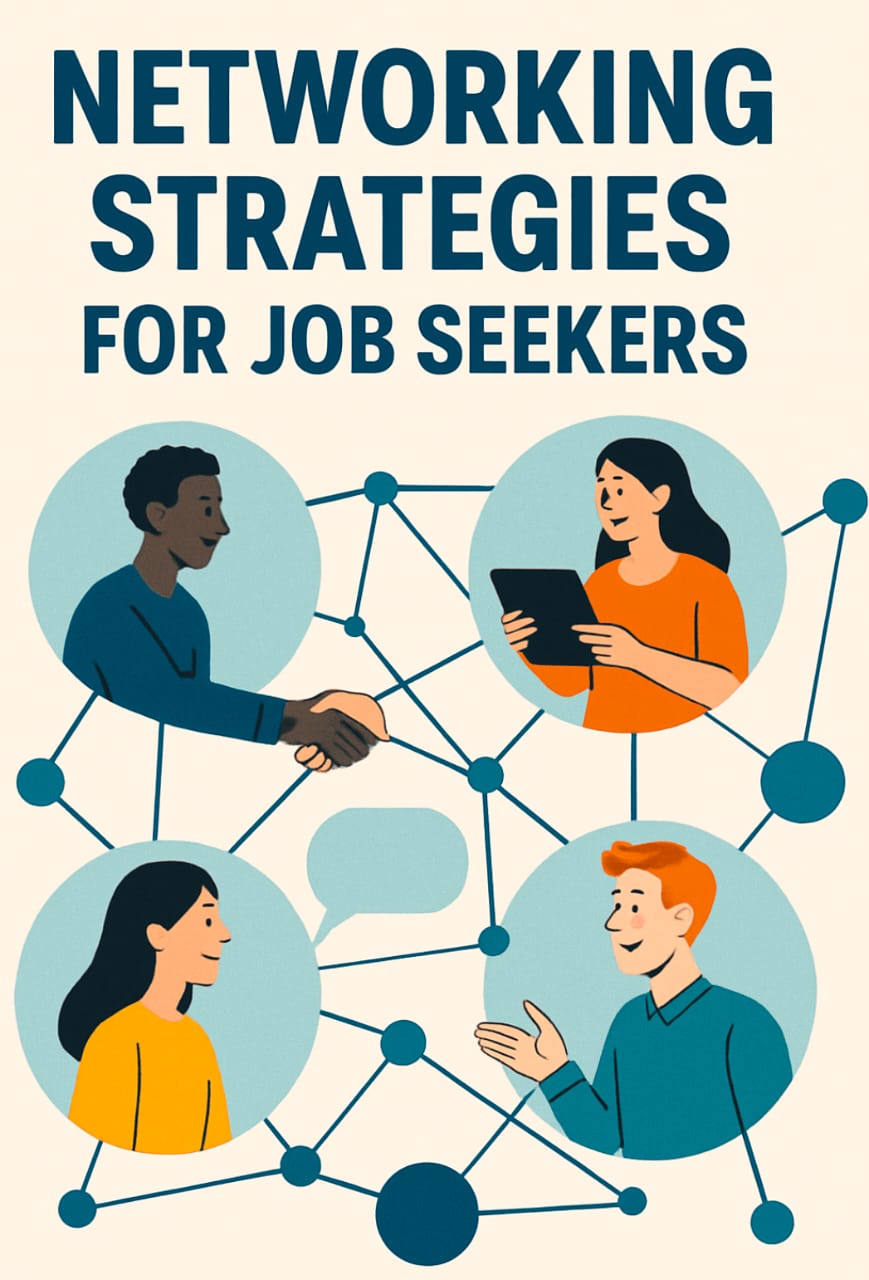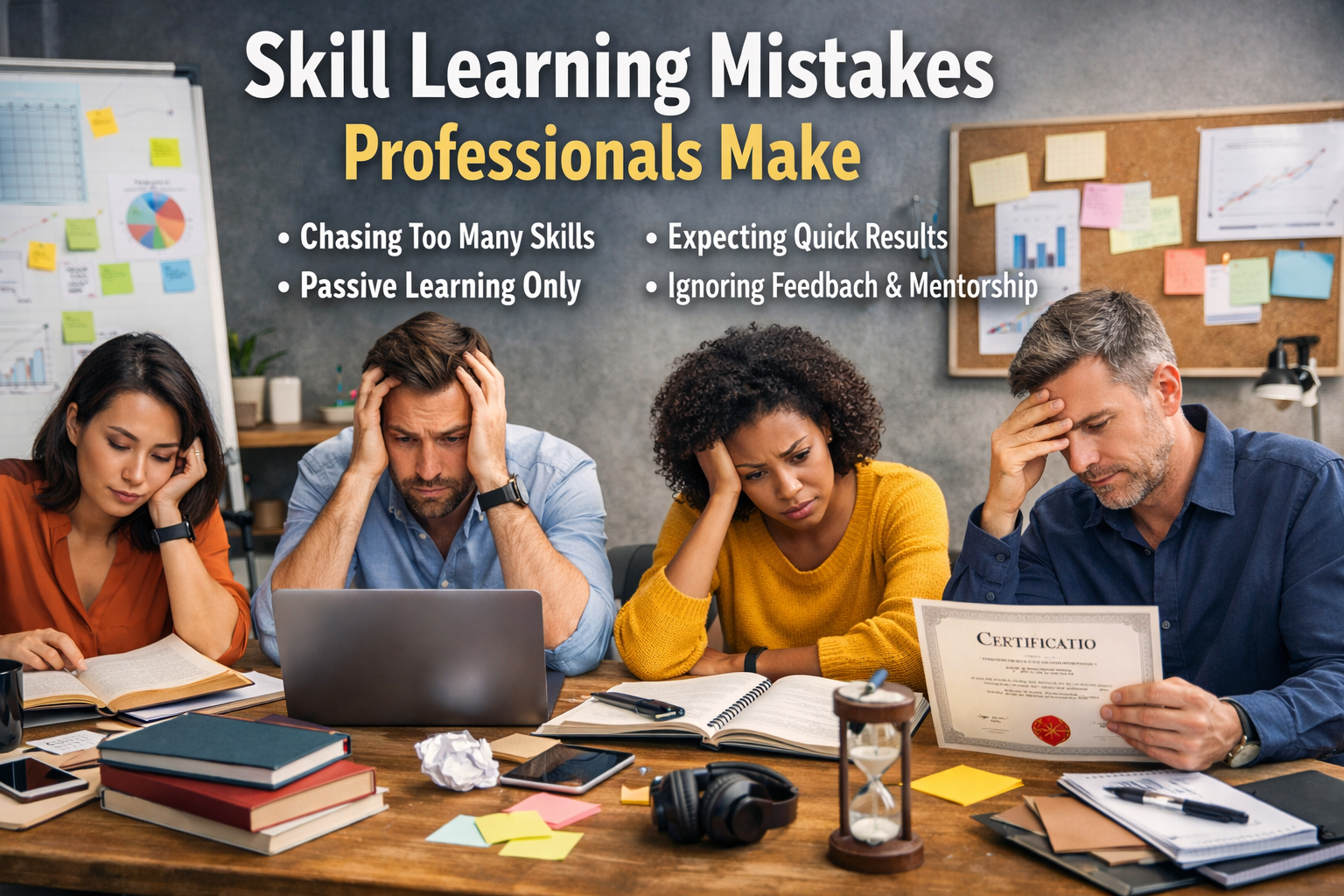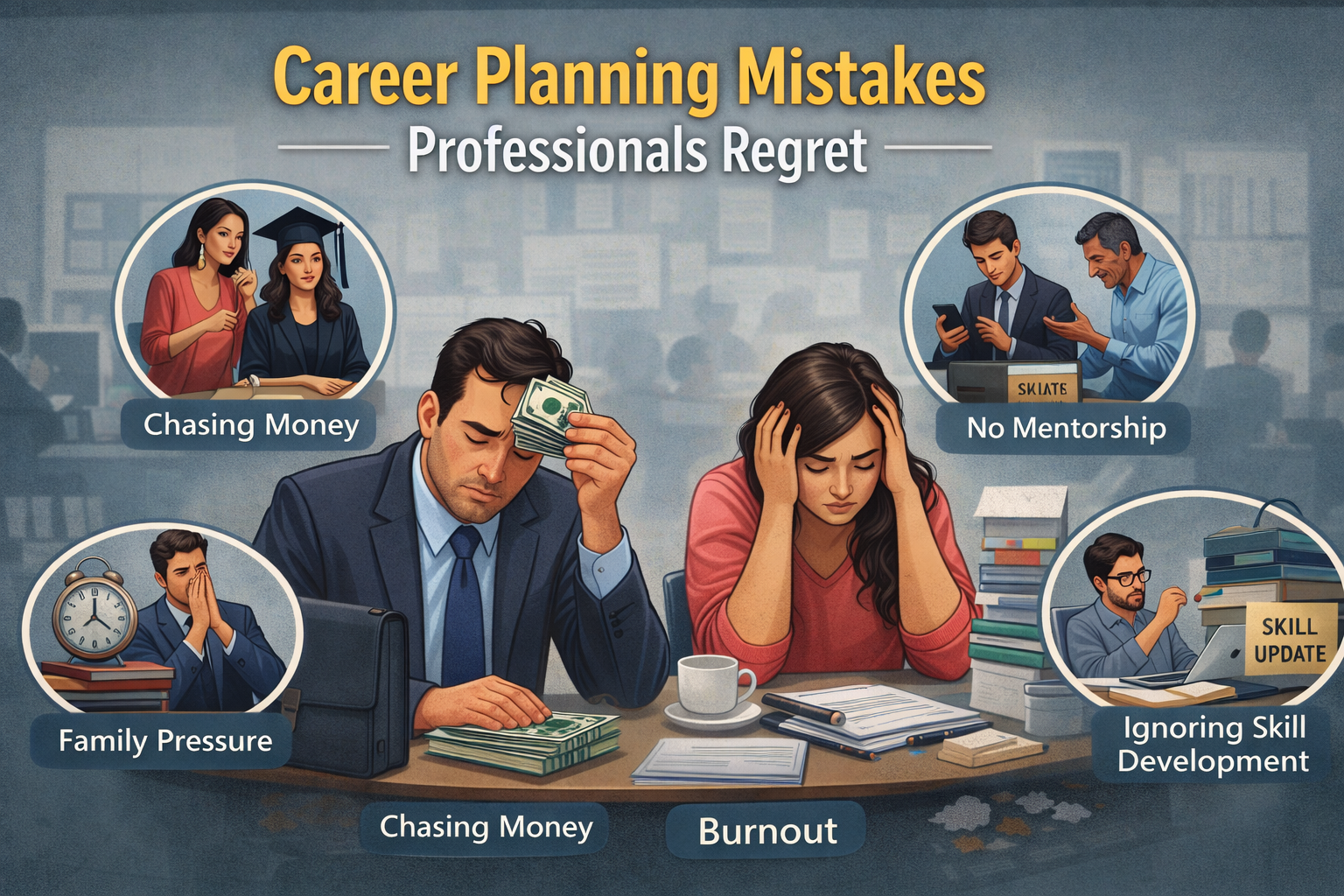Why is Networking Crucial for Job Seekers?
Networking is very important for job seekers because, with the help of networking, you can reach those opportunities that are sometimes unavailable on job portals. Many companies hire candidates internally or through referrals, which means that if you have a strong network, you will be aware of those jobs. You get real industry insight from networking, like which skills are in demand, what the company’s culture is, or what the expectations of a specific role are. When you interact with a professional, it also boosts your confidence and improves your communication skills. Which helps in your interview. Networking is not limited to jobs only – it can also be one way for your long-term career growth. If today you are having a small conversation with a professional person, no one knows, maybe the next day that person will be the reason for your big opportunity.
How to Start Networking as a Job Seekers?
Networking could be overwhelming for a job seeker, but if you follow a step-by-step approach, then it will become easy and effective. First, you need to set your career goal, like – in which industry do you want a job, which role do you prefer, and which company is your priority. Then, accordingly, you have to use your network, like a school or college benchmate, a colleague, a teacher, or family friends.
The next step is to update your profile on a professional platform like LinkedIn. Then start connecting with people and start commenting on industry-related posts. You can also share someone’s valuable post on your profile to show your visibility. When you connect with someone, send a short and polite message to introduce yourself and your purpose to connect with them. The most important part of networking is follow-up. Maintaining connection is important, that’s why check regularly, engage with their updates, and express gratitude. Slowly you’ll see progress in your network.
Networking Strategies for Job Seekers are
In today’s competitive times, only sending a resume is not enough. Chances of getting a job increase only when you have a strong network and make contact with people who can help you grow in your career. Networking is one of the smart and strategic approaches that allows you to connect with those people who can offer you a job. Whether you are a fresher or an experienced person, the right network strategy works for everyone. Connect with new people, show your value, and build a relationship- all these steps can be a game-changer. Now, let me give you some practical networking strategies that you should follow.
1. Job Seekers Should Build an Effective LinkedIn Profile –
Your LinkedIn profile is your digital first impression — it’s often the first place recruiters and potential employers check before contacting you. To make it effective, start with a professional profile picture and a clear, keyword-rich headline that reflects your role or target position (e.g., “Aspiring Digital Marketer | Content Creator | SEO Enthusiast”).
Write a strong summary (About section) that tells your career story — include your skills, achievements, and what kind of opportunities you’re seeking. Make sure to add detailed experience, even if it’s freelance work, internships, or college projects. Use bullet points to describe responsibilities and results clearly.
Also, don’t forget to:
- Customize your LinkedIn URL.
- Add relevant skills.
- Get endorsements and recommendations from colleagues or mentors.
- Stay active by posting, commenting, and engaging with industry-related content.
A well-crafted LinkedIn profile doesn’t just represent you — it works for you, 24/7.
2. Effective Communication and Outreach for Job Seekers –
Networking is not just about connecting; style and tone are also equally important. When you approach any professional through LinkedIn or email, first give your short interview – who are you, what is your occupation, and what is the purpose of connecting. Keep the message short, polite, and personalized.
Example
“Hi [Name], I came across your profile while exploring opportunities in [industry/role]. I’m currently looking to grow in this field and would love to learn from your experience. Would you be open to a quick chat sometime next week?”
This type of message shows your professionalism and your genuine interest. If you receive any message from them, don’t forget to reply to them with a thank you message. And if you don’t get any response, then send a polite follow-up after 2 to 3 days. Always start a value-based conversation, don’t approach just to ask for help. First, build a relationship then opportunity will come automatically.
3. Job Seekers Should Attend Networking Events –
If you are seriously looking for a job, then only applying online is not enough. Networking events like job fairs, industry meetups, webinars, seminars, or LinkedIn live sessions give you opportunities to meet real professionals. It is very helpful for your career.
Here are some practical tips that every job seeker must follow to gain maximum benefits from these events.
Research Before You Attend :
Find out who is attending – speakers, companies, and other professionals. Make a list of people or companies you want to connect with. Prepare a few questions or topics in advance.
Prepare Your Elevator Pitch :
Have a 30-second self-introduction ready where you confidently say who you are, what you do, and what you’re looking for.
Example:
“Hi, I’m Priya, a freelance content writer focusing on lifestyle and motivation. I’m currently exploring full-time roles where I can use my skills to create engaging digital content.”
Dress Professionally :
First impressions matter! Whether the event is in-person or online, dress neatly and professionally.
Be Confident but Respectful :
Don’t hesitate to start a conversation. Ask about their work, share your interests, and try to find common ground. But avoid being pushy or asking for a job right away.
Collect Contacts and Follow Up :
Exchange LinkedIn profiles or emails. After the event, send a short thank-you message and stay in touch with the people you met.
Attend Events Regularly :
The more events you attend, the better you get at networking. Over time, you’ll build a strong professional circle.
4. Using Informational Interviews –
Before asking for a job directly to a professional, you should always start a valuable conversation, such as asking about their experience. Talking casually is called an information interview. It is a non-formal conversation where you gain knowledge by asking professionals about their career paths. The goal is not to ask for a job, it is to gain knowledge and build connections.
But first, you need to know:
- Who Should You Reach Out To? – Approach a professional in the same field in which you also have an interest and want to work.
- How to Send the Message? – Send a short and respectful message telling them that you also want to learn about their industry.
Example,“Hi [Name], I’m exploring a career in [Field] and really admire your journey. Would you be open to a 15-minute call sometime this week to share your experience? I’d truly appreciate it.”
What to Ask in an Informational Interview?
Here are a few great questions:
- How did you start your career in this field?
- What skills or qualifications helped you succeed?
- What’s the work culture like at your company?
- What advice would you give to someone just starting out?
Don’t Forget to Follow Up
After the call, don’t forget to reply to them with a sweet thank-you message.
Build a Long-Term Relationship
Stay in touch. Engage with their posts on LinkedIn, share relevant updates, and maintain the connection. You never know when a casual contact turns into a valuable opportunity.
Informational interviews help you access insider knowledge, grow your confidence, and expand your network — all without asking for a job directly. It’s a smart, respectful, and highly effective strategy.
If you are searching for a full-time job, your time doesn’t have to be spent only on sending a resume; you should also invest in creating a network. And freelancing and volunteering are both smart methods to gain experience and to connect with valuable people.
5. Volunteering and Freelancing as a Networking Strategy –
Volunteering – a free platform to show skills
You can work in any NGO, startup, or at any event, for free, to showcase your skills. Through these, you can show your real value to people.
Like –
- Content writers can write for any blog or social media.
- A graphic designer can create designs for any local campaign.
Through volunteering, your network grows naturally, and sometimes unpaid work becomes a paid opportunity in the future.
Freelancing – connect with real clients in less time
Freelancing platforms (such as Upwork, Fiverr, LinkedIn, or even referrals) allow you to do short-term projects. When you work for someone, you become a trusted contact who can refer you to someone or give you more work. You can gain experience, build a portfolio, and build long-term relationships through freelancing.
Volunteering and freelancing don’t just help you build your resume — they help you build a powerful, engaged professional network.
You’re seen as someone proactive and skilled, which makes a lasting impression on potential employers and collaborators.
How can project-based work help you connect?
Project-based work is one of the most practical ways to build meaningful professional connections. When you work on real assignments—whether freelance, volunteer, or internship—you collaborate with clients, managers, or teammates, which creates opportunities for genuine interaction. Instead of just introducing yourself online, your work speaks for you. People begin to trust your skills, see your work ethic, and are more likely to refer or recommend you in their network. It’s a natural way to stay connected, build credibility, and grow your professional circle—without the pressure of asking for a job directly.
Tools to Help With Networking
The first one is LinkedIn. It is a professional networking platform where people create their professional profiles to showcase their skills, experience, and achievements. This is the best platform for finding professional jobs.
Key features:
- You can connect with the industry experts, recruiters, and professionals.
- You can use your LinkedIn profile as a digital resume.
- You can see all the information about the company and its job openings by following them.
Teal
Helps you organize your job search with a smart tracker, resume builder, and job recommendations.
Key Features:
- Create customized resumes for different job roles.
- Get suggestions to improve your resume content and keywords.
- Generate personalized cover letters using AI.
- Shows which skills are missing from your resume for a specific job.
Hunter.io
Great for finding professional email addresses of people you want to connect with (especially useful if they haven’t accepted your LinkedIn request). Helps you reach out via email with personalized messages.
Key features:
- You can find any one’s professional email address by searching from their company or by names.
- If you are unsure about email authenticity, then you can check from hunter email verifier. It tells you whether the email address is active or not.
- Hunter also provides a free version in which you can search 25 searches and verify 50. It is best for beginners.
Calendly
If someone agrees to talk, make scheduling easy! Use Calendly to share your availability and let them book a time that works. It saves back-and-forth messages and looks professional.
Key features:
- You can create different types of meetings — like 15-min Coffee Chat, 30-min Intro Call, or Portfolio Review — and set your availability for each.
- Share a personalized link that shows your available time slots. The other person just picks a time — no need to message back and forth.
- Calendly integrates with Google Calendar, Outlook, iCloud, and more, so it automatically avoids double bookings and keeps everything in sync.
Notion
Create your own simple networking CRM (contact management system) to track who you’ve reached out to, when you followed up, and what the next step is. Staying organized shows you’re serious and professional.
Key features:
- Track all your applications, deadlines, statuses, and contacts in a clean dashboard. You can even use pre-made templates.
- Make pages for your resume, portfolio, interview prep, or even cold outreach templates. Everything is customizable — your space, your style.
- You can share pages with mentors, friends, or even recruiters if needed. Useful if someone is helping you with job prep.
Conclusion
If you’re actively job hunting or trying to grow your professional network, then using the right tools can make a huge difference. While this article shares effective networking strategies like cold messaging, LinkedIn optimization, or attending events, pairing these tactics with the best job tools can make your outreach smoother and smarter. Tools like Calendly, Hunter.io, Notion, and Teal help you stay organized, schedule meetings, find email contacts, and track your job applications — all in one place. Want to explore more tools that support job seekers and networking? Don’t miss our article on the “Top 5 AI Job Search Tools You Need to Try” — it’s your toolkit for success.
“This way, you can help yourself build strong networking and gradually move towards a successful career.”
You can read more blogs here.







Leave a Reply